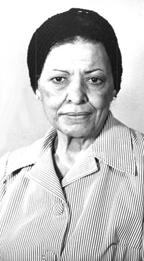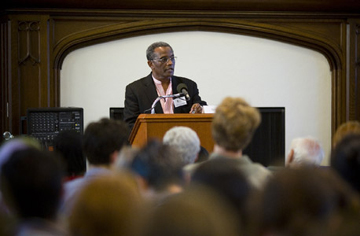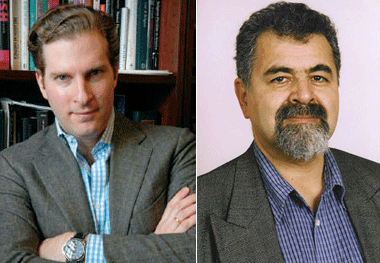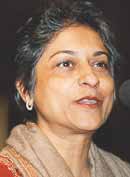
from al-Ahram, July 2004
Aisha Abdel-Rahman, better known as Bint Al-Shati’, might have become famous for her fiction and poetry but it was her stories on rural Egypt which launched her writing career in Al-Ahram. The “Daughter of the Shore”, writes Professor Yunan Labib Rizk, had a weak spot for the countryside and its people
From the outset of her career, Aisha Abdel-Rahman, a prominent scholar and writer, preferred to go by the name Bint Al-Shati’ (Daughter of the Shore). She adopted this pen-name, which alludes to her birthplace in Damietta, out of respect for her family’s customs — her father was a scholar in a religious institute in that northern Egyptian coastal city — and because it was also a custom of that age for women writers to conceal their true identities.
Bint Al-Shati’ first made her mark in Al-Ahram in the summer of 1935 when the newspaper allocated considerable front-page space to the problems of rural Egypt. She was only 23 at the time (she was born in 1913), which is not so odd in itself — it was Al-Ahram ‘s policy to give a chance to young and talented aspiring writers, of whom some later became its prominent featured writers and literary and intellectual celebrities. What was odd, given her conservative family background, was the level of education she attained. Her father, an Azharite, would not allow her “modern schooling” so he educated her himself, and so solid was his instruction that she came out first among all the female students who sat for the competency certificate for teachers “from their homes” in 1929. Thus encouraged, she received her secondary school baccalaureate in 1934. This was the only certificate she was armed with when she began writing for Al-Ahram the following year. But then whoever said that degrees make a writer? Continue reading Bint al-Shati’: A Female Voice In Islamic Law






